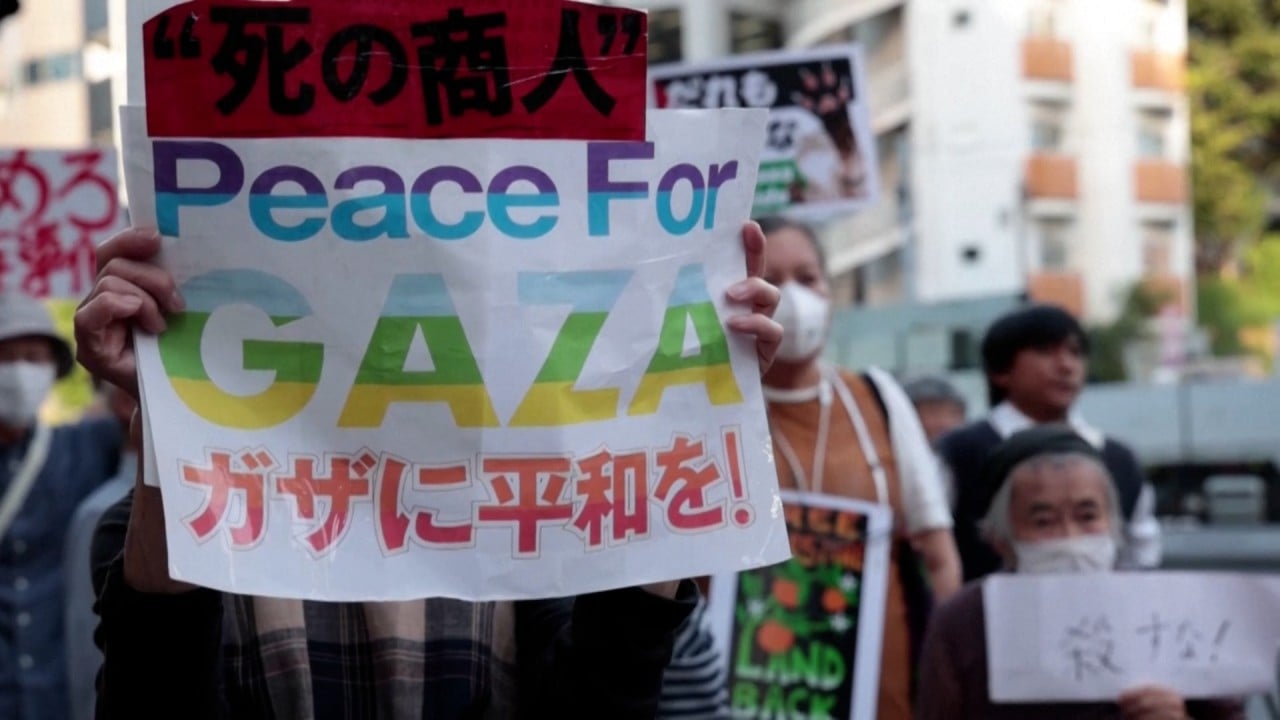A ceasefire in Gaza and stopping the conflict from expanding “may be the only objective that has all Arab states’ backing, as they worry the war would blow up the ‘new Middle East’ many of these states already threw their weight behind”, he said, referring to the regional trend towards normalising relations with Israel since Bahrain, Morocco, Sudan and the United Arab Emirates signed the US-sponsored Abraham Accords in September 2020.
“Everything else is sadly subject to debate,” Aboudouh said.
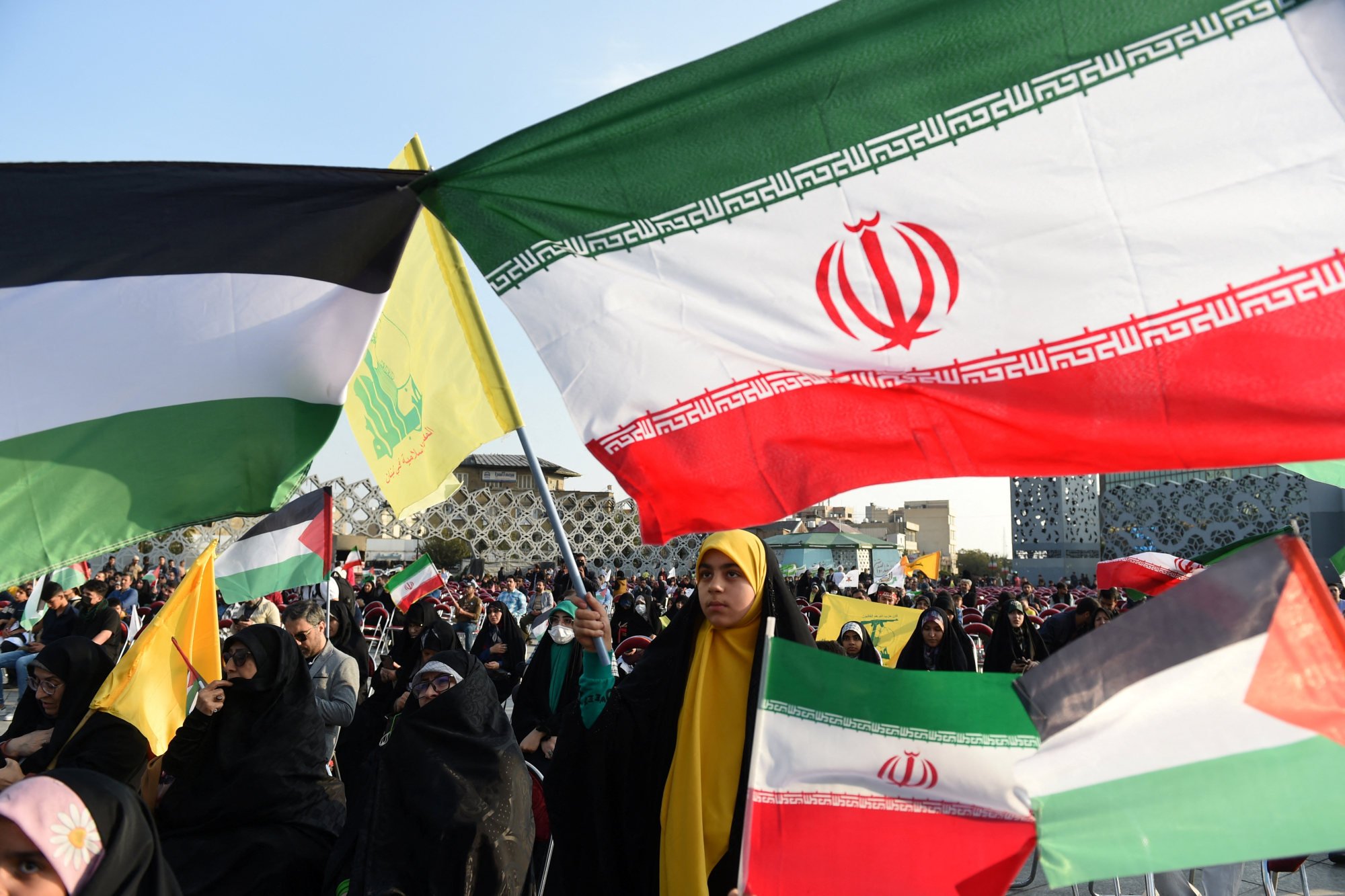
While Arab governments “all share the view that Israel’s carnage of Palestinians must stop”, he said there were three reasons why they had not acted effectively to achieve that objective.
The first is their “general weakness versus the US” in the face of its determination to unequivocally back Israel and degrade Hamas’ military and governance wings.
Third, many Arab states have “passed the point” of making the building of official ties with Israel conditional on achieving peace with the Palestinians, and they now “advocate separating pragmatic ties with Israel” from their benevolent humanitarian aid to the Palestinians and calling for a ceasefire, Aboudouh said.
In terms of diplomatic rhetoric, Arab states are mostly united in terms of calling on the US to pressure Israel into accepting a ceasefire, analysts said.
They also agree that Israel’s occupation of Palestinian land is a cause of the violence, and that the long-proposed two-state solution in line with international law is necessary for resolving the decades-long conflict once and for all.
But there have been “some differences in terms of how the Arab states have reacted to the conduct of Hamas”, said Giorgio Cafiero, the CEO of Gulf State Analytics, a Washington-based risk consultancy.
Bahrain and the UAE, the Gulf signatories of the Abraham Accords, were “quick to condemn” the Palestinian group for launching the unprecedented October 7 assault against Israel.
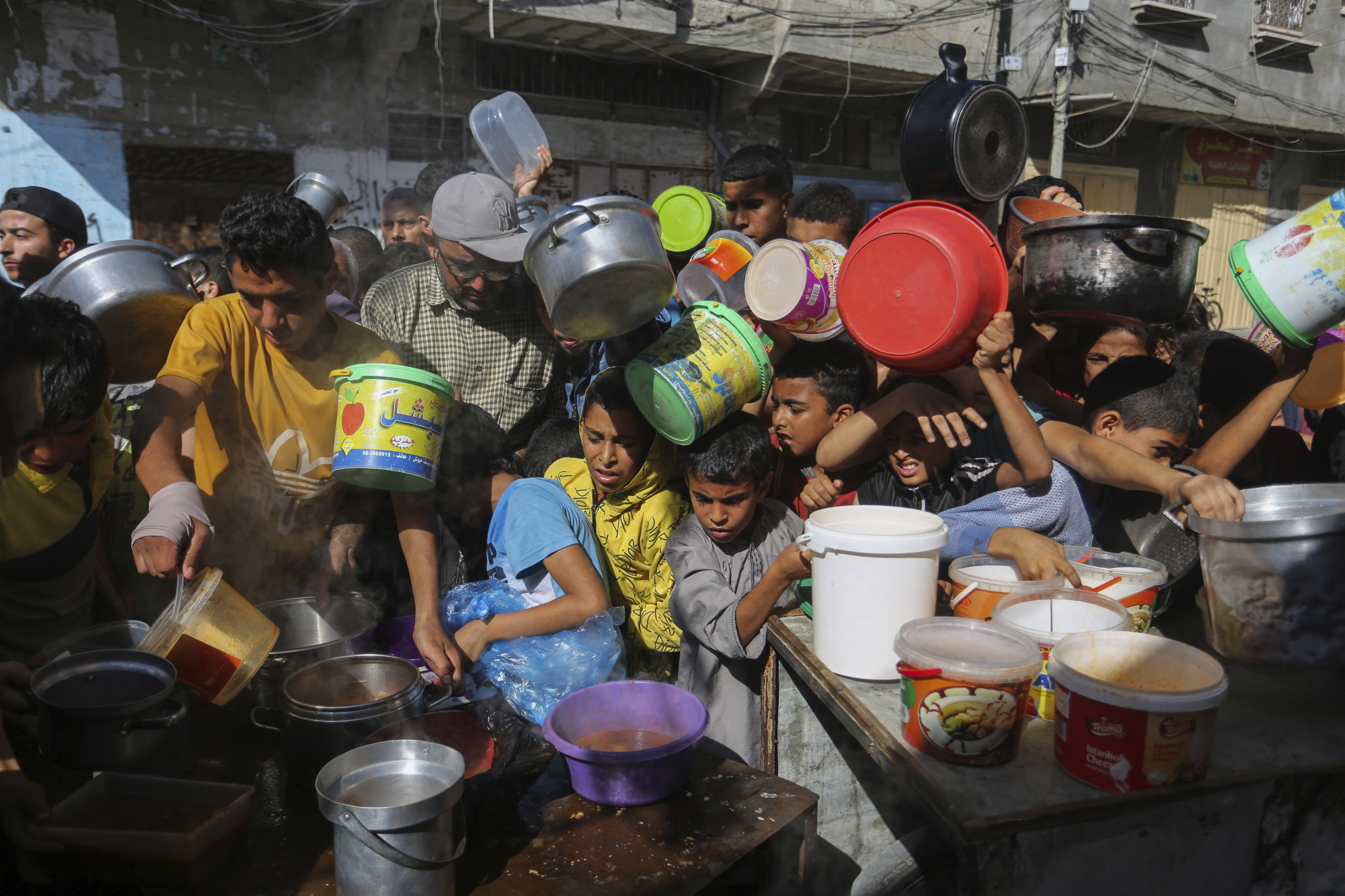
“Yet, as the carnage and humanitarian nightmares in Gaza worsen, it seems that all Arab states are increasingly focused on condemning Israel rather than Hamas and this includes the UAE and Bahrain,” Cafiero said.
Analysts said the Gulf Arab monarchies feel particularly vulnerable to being dragged into a regional conflagration, which would threaten the massive investment programmes they are undertaking to reduce their economic reliance on oil and gas revenues.
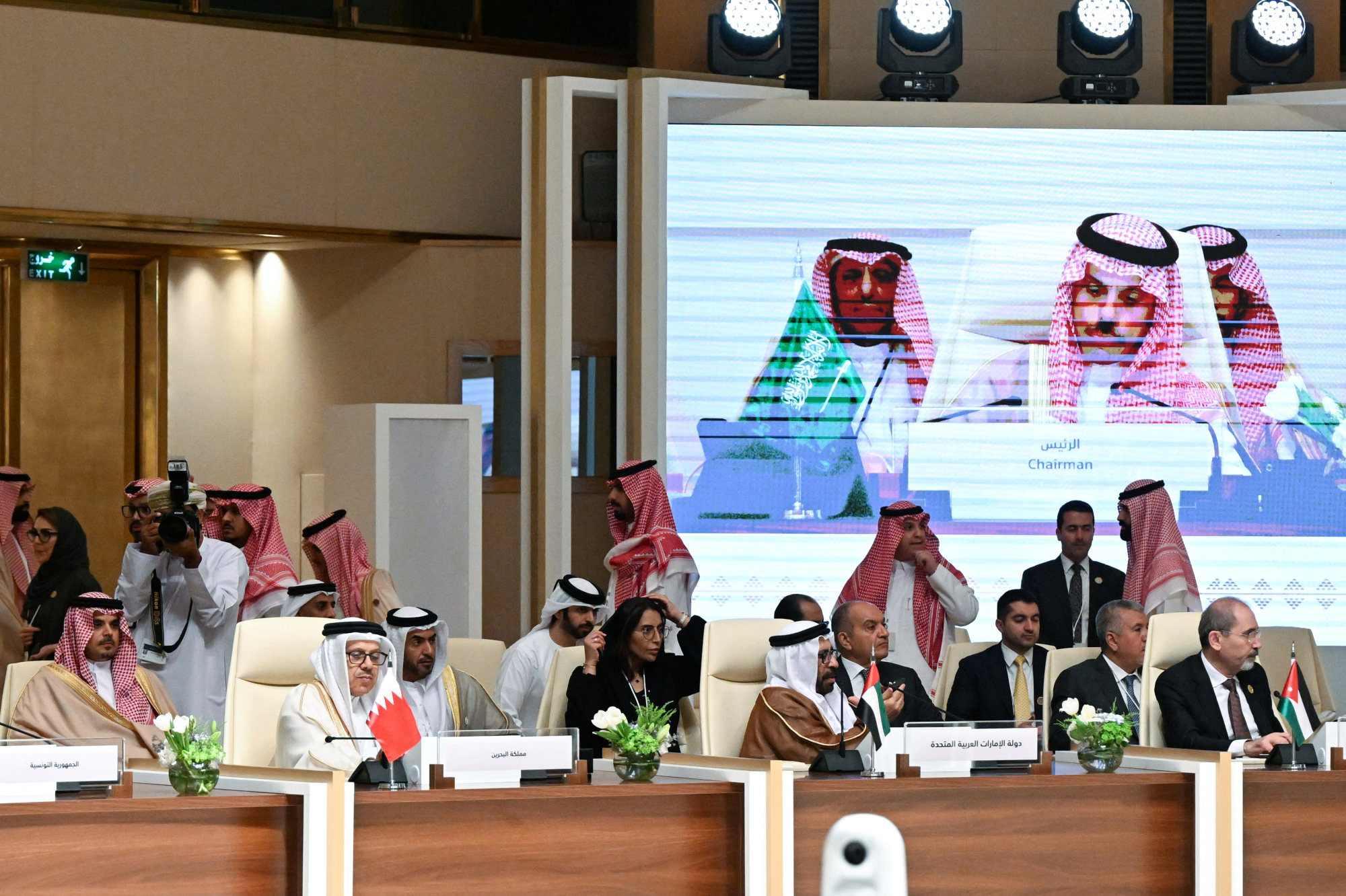
Arab leaders are equally concerned that rising popular anger against Israel’s demolition of Gaza could fuel public unrest in poorer Arab countries like Egypt and Jordan, which are dependent on financial assistance from the West and Gulf to keep their economies afloat.
“A major political concern for Arab governments is how their own citizens will respond,” Cafiero said.
If there is “more mayhem, ethnic cleansing, and genocide in Gaza”, there is every reason to assume that Arabs and Muslims worldwide will become increasingly angry and that governments across the Arab world “will have to contend with this anger”, he said.
At a time when “many Arab governments have concerns about legitimacy crises”, officials in the region will be worried about how the Gaza war would have “potential to create more difficult challenges from the standpoint of regime legitimacy at home”, Cafiero added.
‘Toxic’ narratives over Israel-Gaza war open deep divisions in the West
‘Toxic’ narratives over Israel-Gaza war open deep divisions in the West
Egypt and other Arab states are “already witnessing the ripple effects of the war”, said Cairo-based political analyst Shahira Amin, a non-resident senior fellow of the Scowcroft Middle East Security Initiative at the Atlantic Council, a Washington think tank.
She noted that during mass protests to show solidarity with the Palestinians, “much of the anger and resentment is directed at the leaders of Arab countries for their muted stance on the war”.
Bahrain and Jordan recently recalled their ambassadors to Israel, while Saudi Arabia has paused exploratory talks with the US over normalising relations with the Jewish state, but to date there have been no official talks about collectively downgrading relations.
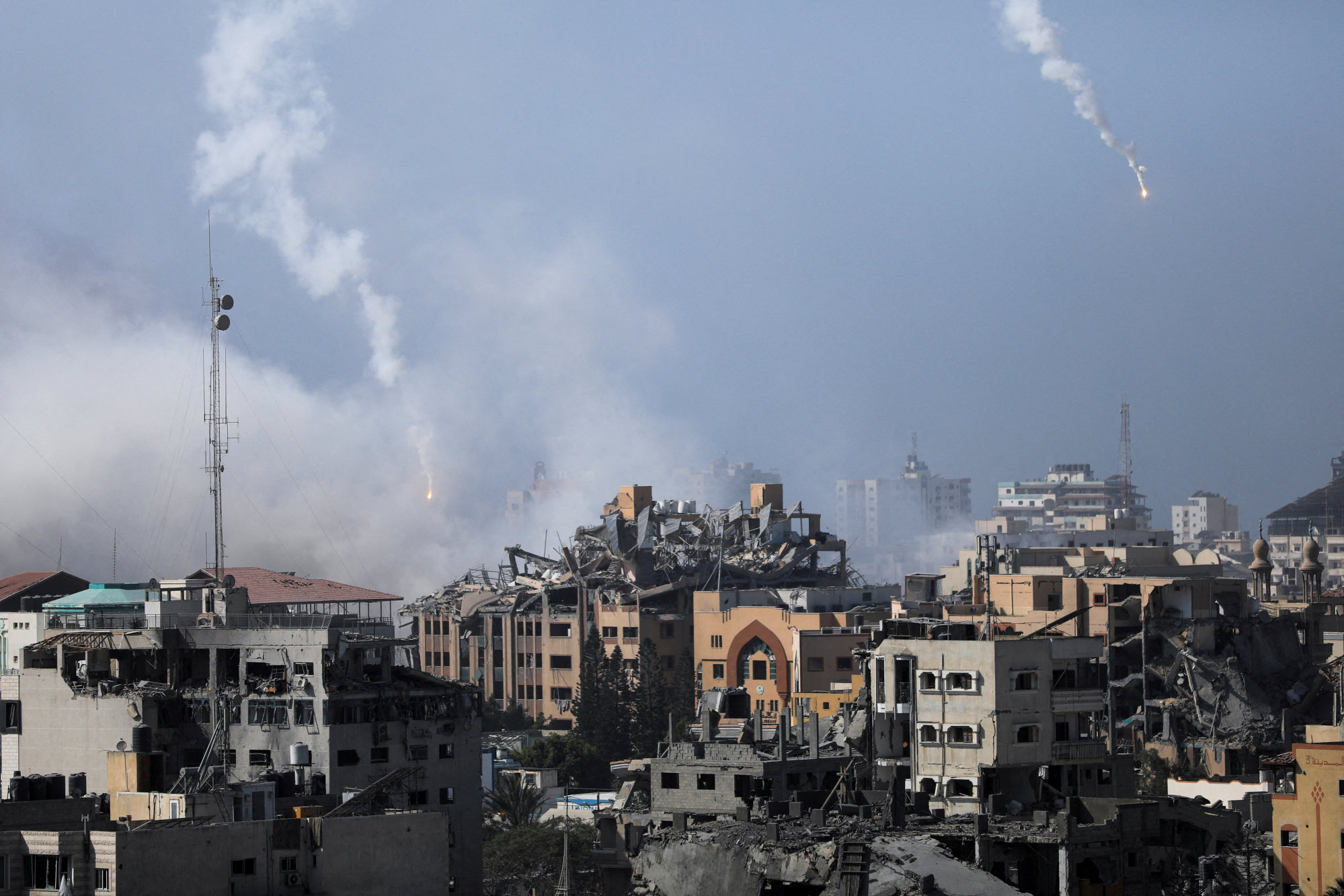
Had Arab states chosen to take a united stand, Egypt and Jordan – the first Arab countries to sign peace treaties with Israel – “could have threatened to freeze their peace agreements and other states that have normalised more recently, could have done the same”, Amin said.
Likewise, Gulf Arab producers “could have threatened to stop oil exports to states supporting the war on Gaza”.
“Those countries do have cards that they can use to pressure Israel but are reluctant to use them” either because of the large amounts of military aid they receive from the US or “because they are wary of Hamas”, she said.
Each Arab state “is looking out for its own interests”.
Egypt, Saudi Arabia and the UAE perceive Hamas as a Muslim Brotherhood affiliate and so “have no qualms about Israel annihilating the Islamist group”, Amin said.
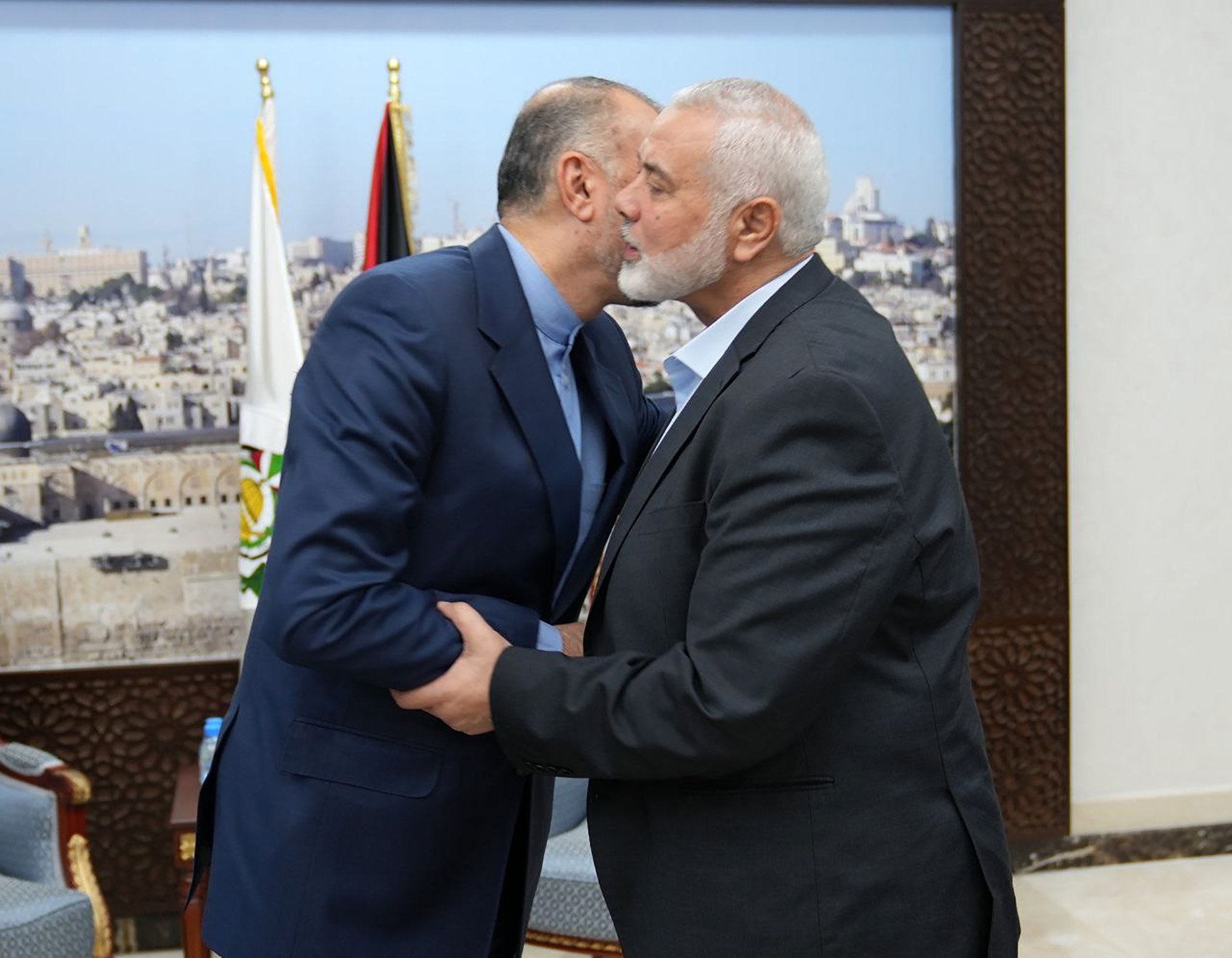
Qatar, on the other hand, has been more tolerant of the group and has given both exiled Muslim Brotherhood members and Hamas leaders a safe haven, and “that is why it is able to exert influence on the group in mediation talks”.
With such differences in their ranks, Cafiero said “there is a limit as to what Arab states can do to de-escalate” the Gaza conflict as long as Israel wants to continue moving ahead with its bombing campaign and ground incursion, while the US gives it “extremely high levels of support”.
But as the conflict stretches on, Arab states such as Qatar and Egypt “will be playing critical roles in the negotiations which will lead to the eventual ceasefire”, he said.
Until that point, Doha, Cairo and other regional capitals “will be working to promote a necessary dialogue between different players involved in this escalating crisis”.


